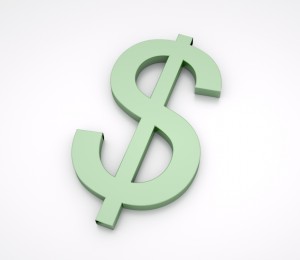
Perhaps you’ve said to yourself, I want to save money, but where do I start? I’ve asked myself the same question. During the last three years of the Great Recession millions of other people around the globe have probably wondered the same thing. So, where do you start?
Let’s take a look at the way the average income earning, hard-working person can save money on what is usually the largest expenses in the monthly budget. Then, we’ll briefly look at what to do with that money that starts piling up. If you follow these simple principles, it won’t be long before the statement “I want to save money” turns to “I want to invest money”.
I Want to Save Money… on Housing
According to the US Department of Labor, the average American consumer spends about 35% of their income on housing. That’s the largest line item by far. Shelter is one of the basic human necessities and it doesn’t come cheap. If you’re telling yourself, “I want to save money on housing”, here are a few ideas:
- Live in a smaller house – Less cost all around. Simple.
- Avoid buying a house with high land taxes – I have a friend who pays over $12,000 taxes a year for a modest home and small property in Long Island. That’s like renting your home for $1,000/mo AFTER you pay off the mortgage!
- Rent or buy an energy efficient home – If your monthly heating bill is over $500 a month, you may want to consider moving
I Want to Save Money… on Transportation
The second highest monthly expense according to this nifty pie chart is transportation: a full 15%. I’ve written a more detailed postabout this before, but here are a few simple tips:

[adsense]
- Drive your car less – I realize this is easier said than done, but think creatively here.
- Drive slower – Keep the speedometer at 60. You’ll get optimal fuel mileage at that speed.
- Be a one vehicle household – Getting rid of that second vehicle will save you a bundle every year. And remember, with taxes a penny saved is MORE than a penny earned.
I Want to Save Money… on Food
Third in the list from the US DOL, is food. Yes, unlike a vehicle, food genuinely IS a human necessity. But there are ways to cut the fat here as well. Just a few would include:
- Buy no-name products – For the majority of food products, the quality and flavor are identical, and you’ll save between 15 and 30% off the brand name prices.
- Fast – I threw this one in tongue-in-cheek. Kidding aside, a regular three day fast, every two to three weeks is good for your body. And you’ll save three days worth of food expenditure, while you’re at it!
- Eat less meat – While not a vegetarian or vegan, I do advocate eating less meat. It’s pricey, the production of meat is often a bad deal for the environment and some meats have even been linked to cancer. So just dial down the intake and stick to white meats like chicken and fish. They’re healthier than red meats.
Sticking with the advice given above, where should you invest the nest egg that starts accruing? Here are a few ideas:
- Invest in a business – Just ask Warren Buffet. Starting, running and even buying quality businesses that produce intrinsic value are some of the best investments you can make.
- Invest in the stock market – Tread carefully here. Your best bet is usually to invest in a mixed fund that tracks the market pretty closely. Otherwise this can be the next thing to betting at a casino.
- Invest in yourself – Further your education. Learn that skill that you always wanted to acquire. When you invest in yourself, the dividends can be much more rewarding than an invisible stock investment that climbs or falls.
Further Reading:
What are your thoughts? Are there any investments you would consider pursuing that I didn’t mention? Thoughts on how to save? Go ahead and write them in the comments below.One of my favorite books on my bookshelf regarding saving money and budgeting, is called Budget on a Shoestring: How to Budget a Household . You’ll save the face value of the book in the first month of putting these budgeting ideas to work.
. You’ll save the face value of the book in the first month of putting these budgeting ideas to work.
